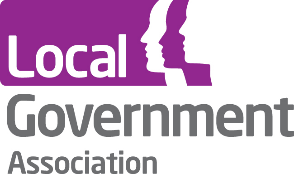

This page gives some highlights of our consultancy activity, and provides links to some of our reports where these have been published or otherwise placed in the public domain.
If you would like more details on any of these projects, please do not hesitate to contact us.

Kent County Council
We have worked on a number of projects for Kent County Council’s [KCC’s] Children & Young People’s Directorate.
Review of 16-to-19 provision
acl was appointed as external expert to support the delivery of KCC’s review of post-16 provision. A substantial body of evidence was assembled from a range of sources – principally: a detailed analysis of relevant local and national data; 48 semi-structured interviews across the range of 16-to-19 and pre-16 providers active in Kent, plus other stakeholders and key players (21 interviews); 30 focus groups with young people across 22 providers; contributions from other interested parties in response to a widely-publicised call for evidence; and online surveys of parents and young people.
acl provided technical inputs that framed how the Review was conducted, drafted all the research tools, contributed substantially to all elements of the work programme, used quantitative and qualitative techniques to analyse the considerable dataset produced, and drafted the final report Patheways for All [PfA] (available at https://www.kent.gov.uk/education-and-children/post-16-options/kent-16-to-19-review-pathways-for-all).
After submission of the report we continued to work with KCC, The Education People, sector providers, and other stakeholders, providing support for the implementation of PfA and the Review’s recommendations to the KCC team and the PfA Strategic Board and its sub-groups.
Support for policy consultations
KCC has commissioned acl to analyse the responses to its public consultations on:
- The Draft Strategy for the Future of Education in Kent for the period 2025 to 2030 (131 responses)
- Proposals to establish a Locality Model for Special Educational Needs provision (832 responses).
The consultation questionnaires contained both closed questions (based on a five point Likert scale) and open questions. We provided an analysis of and informed commentary on responses to both types of questions. The reports are available on the LetsTalkKent pages of KCC’s website (at https://letstalk.kent.gov.uk/education-strategy-25-30 and https://letstalk.kent.gov.uk/locality-model-for-special-educational-needs-inclusion).

The Gatsby Charitable Foundation
We carried out research into the funding and delivery costs of higher technical education (vocational qualification Levels 4 and 5) for the Gatsby Charitable Foundation, in collaboration with the Association of Colleges and the Department for Education. Our work involved interviews with further and higher education institutions and detailed work on the cost base for these qualifications, which are seen as providing a vital input into the skills agenda for England.
Our report can be found on the Gatsby website by clicking here.

Medway Council
acl was appointed as external expert to support the delivery of Medway’s review of post-16 provision.
A substantial body of evidence was assembled from a range of sources – principally: a detailed analysis of relevant local and national data; interviews with all post-16 providers in Medway, plus other stakeholders and key players (mainly Council staff and members, and local employers); focus groups with young people; contributions from other interested parties in response to a call for evidence; and online surveys of parents and young people.
acl drafted all the research tools, contributed substantially to all elements of the work programme, used quantitative and qualitative techniques to analyse the considerable dataset produced, and drafted the final report.

The South London Commissioning Programme
acl was commissioned by the South London Commissioning Programme [SLCP] to develop its, and its member boroughs’, approaches to commissioning High Needs [SEND] educational provision in general further education colleges [GFECs].
We interviewed representatives of, and collected and analysed anonymised data on current provision from, 9 of the 10 boroughs in membership of SLCP for SEND purposes; we also interviewed staff from 12 of the GFECs the boroughs used for SEND placements.
Our report contained a total of 31 recommendations covering: the student journey (from Year 9, or earlier, into post-16 provision); the costing, pricing and funding of provision; documentation, administration and data; provision planning; and the relationship between boroughs and providers.

Funding post-16 provision
We have carried out a number of reviews for the Department, many of which have addressed issues relating to the funding of provision; the most significant of these was a study aimed at providing estimates of the cost of delivering good quality FE provision.
Through a variety of means we identified a longlist of post-16 providers that could be deemed to be delivering good provision; from this list interviews were conducted in, and a range of cost and income data collected from, 33 providers (18 GFECs, 5 sixth form colleges, and 10 work-based learning providers).
Our report argued for an increase in funding if the FE sector was to survive in its current form and received widespread publicity and support from the sector, leading to an increase in the base rate; it can be found by clicking here.
Costs of running the education system
DfE also commissioned us to investigate the costs incurred by local authorities in running the education system. We identified a group of 16 local authorities, broadly representative of authorities as a whole, to be involved in the project. Fieldwork comprised interviews with relevant staff, and a review of their cost data (including benchmarking data from other authorities). We reported on the qualitative elements of the fieldwork (in essence how the authorities were responding to the funding challenges they were facing), reviewed the cost data, and considered the extent to which various categories of cost were modellable and carried out multiple linear regression analysis where appropriate.

acl was commissioned by DCC to review the provision of special educational needs support to schools in Derbyshire and make recommendations concerning the configuration and management of these services. We interviewed staff delivering and in schools in receipt of the range of support services provided. Our recommendations focused on increasing the ownership of services and service provision by the mainstream schools whose pupils received support from the largely peripatetic delivery teams.



The Local Government Association, the Association of Colleges and Natspec
We were commissioned by the LGA, AoC and Natspec to undertake a review of arrangements for planning, commissioning, funding, and supporting provision for post-16 high needs students. The purpose of the review was to provide the study’s sponsors with a clearer understanding of how local authorities and providers within the post-16 High Needs system – general further education colleges and special post-16 institutions – could work together to manage an increased demand for support for High Needs students, and what more could be done to make best use of resources.
Fieldwork was conducted in 10 local authority areas, selected to reflect the range of authority ‘types’, high needs block allocations, and the change in number of Education, Health & Care Plans (EHCPs) since 2014. Each local authority was asked to identify providers to whom it contracted a significant proportion of its high needs funded provision for interview. Across the 10 local authorities we spoke to 25 local authority staff and 50 staff from 28 providers – 14 general further education colleges and 14 special post-16 institutions.
Our report made a number of wide-ranging recommendations concerning the management and delivery of programmes to these students, as well as proposals for more radical changes to the High Needs system; it attracted significant press coverage and can be found by clicking here.

We have provided advice to Natspec on the costing and pricing of programmes of 16-19 and 19-25 education in the light of changes to the funding of high needs students.
In addition we have worked with a number of individual independent specialist colleges to check that their approach to pricing student programmes is robust and able to cover their direct and indirect costs.
With Natspec, we deliver regular workshops on High Needs funding, costing and pricing to Natspec members.
acl Consulting, Lodge Farm, Hognaston, Ashbourne, Derbyshire DE6 1PW. Telephone 01335 372158. eMail davidl@aclconsulting.co.uk